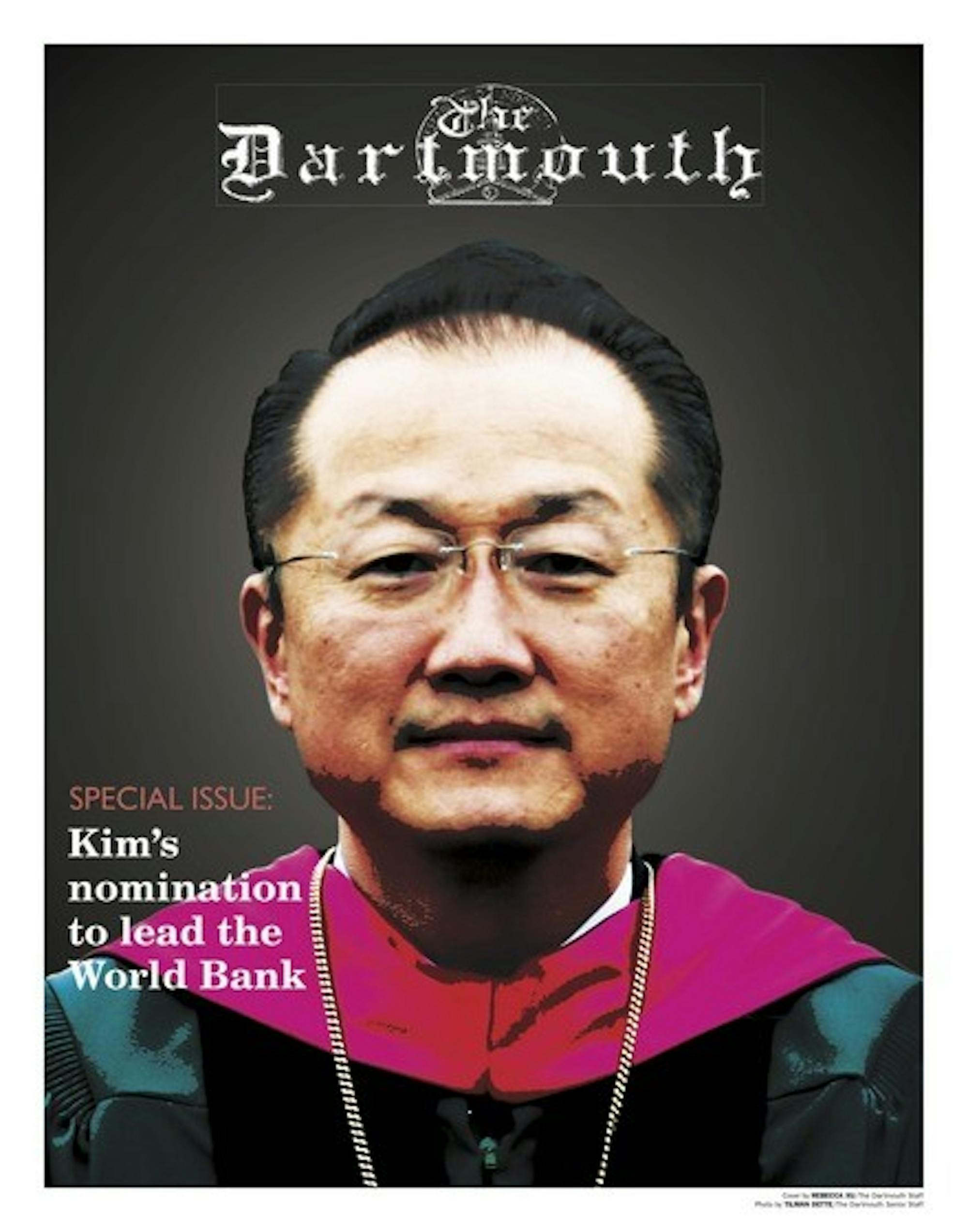While Kim said in a campus-wide email last week that he would continue in his role as College president during the nomination process, his appointment as World Bank president is a virtual certainty.
During the College's search to replace former President James Wright in 2008, Provost Carol Folt's name was submitted to the search committee, but she decided not to apply formally. Folt said it would be "premature" to say if she would be considered in the search for an interim president this time around.
"I see myself as a person that wants to help Dartmouth achieve its bigger goals," she said. "The role that I will play will be the one that will most effectively allow me to do that at this time and then moving on in the future."
Folt has been at the College since 1983, starting as a professor of biological sciences. In 2004, she was named dean of the faculty of arts and sciences and began serving as Dartmouth's acting provost in 2009. Kim appointed her provost in 2010.
A New York Times article earlier this week suggested that current Treasury Secretary Timothy Geithner '83, as well as his predecessor Henry Paulson '68, could be among the candidates for the presidency. Although Geithner has insisted publicly that he will leave the Obama administration at the end of the president's first term, there are no guarantees as to whom the Board will consider, according to Chief of Staff David Spalding '76.
"I think they'd both be great candidates, but at this point, it's more like a parlor game of speculation than it is anything grounded in reality," Spalding said. "I also have a very high regard for Carol Folt, but that's really a decision that the Board of Trustees is going to make."
Folt said she has "absolute faith" in the decision-making capabilities of the Board.
"The Board has deep experience in what is needed for the institution," Folt said. "When they are making the decision, they will be doing so very carefully."
A prior knowledge of the College's inner workings will be an important asset for an interim president, according to Folt.
"I think it's essential in a transition that you have an understanding of the institution because you don't want to have a transition be a time when you stop," Folt said. "But a transition isn't just about an interim president, it's about a whole team. We have a lot of depth and experience working groups that have done a lot to bring new members in."
Kim's "real, tangible accomplishments" have made the possibility of a future president from outside of Dartmouth all the more likely, Spalding said, citing the newly renovated Class of 1953 Commons and the construction of a new softball field as among Kim's achievements.
"I think President Kim showed someone from the outside can quickly gain an appreciation for the essence of Dartmouth and of Dartmouth's traditions," he said. "I think if you talk to alumni across the country, they'd tell you that he spoke and talked like one of us.' That opens up a wide range of candidates to be the potential next president of the institution."
In the search for the 17th president, the Board put hundreds of potential candidates through an extensive review process. Any candidate considered this time around will need to be able to continue Kim's progress, Spalding said.
"Just as the community here in Hanover was emboldened by President Kim's objectives, the Board of Trustees were as well, and I think they're going to be looking for someone to continue to take us forward on that path," Spalding said. "We've got a strategic planning process well underway, and we wouldn't want to lose the positive momentum that we have coming out of the strategic planning process."
While concerns about hazing and student life have been highly publicized lately, Spalding said he remains hopeful that this will not prevent the College from attracting qualified candidates.
"When we were looking for a president to succeed Jim Wright, we were facing a lawsuit about our alumni association and alumni problems, and despite those issues we were able to attract someone like President Kim," he said. "I would hope that even with those issues we'll still be able to attract somebody like President Kim again."
When Kim took the presidency in 2009, he was faced with the worst endowment performance in 30 years, largely as a result of the 2008 economic crisis. Kim was charged with cutting $100 million out of a projected budget of $900 million.
Continuing this momentum is also a priority in the minds of Dartmouth's faculty, Folt said.
"The faculty's day-to-day life is in the classroom, studio, laboratory and library, but they see that forward progress as really important," she said. "They want to make sure that the next class at Dartmouth is going to be just as strong, that the faculty they hire tomorrow are going to be just as excited about coming here. They're energized by a strategic process that says the sky is the limit."
Kim's time at the College has brought Dartmouth to a level that will make it a "destination of choice" for new administrators and faculty, according to Folt.
"I think Dartmouth has been at the same moment all of higher education in America has been, with the financial crisis that hit the country and had an effect on all institutions," Folt said. "[Kim] was the president at that pivotal moment, and he took a straightforward approach to the budget and addressed it in every way possible while simultaneously launching a strategic planning process that was all about the future. He went straight to the heart of student life with the problem of binge drinking and used broad involvement from faculty, students and community to make the next steps to put us on the path to progress."
Staff writer Laura Bryn Sisson contributed reporting to this article.




